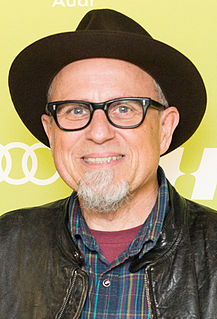A Quote by Madeleine M. Kunin
The death of a famous person is different from the death of a loved one, whether it is Michael Jackson, Frank McCourt, or Walter Cronkite. We didn't know any of them personally, and yet, we experience a sense of loss.
Related Quotes
I always wonder when people have any kind of spiritual and meditative practice especially if it's one designed in part to help them cope with things that seem unmanageable and to cope with something like death, if they're able to maintain that practice and maintain the equanimity at the time of death whether it's, you know, that person's or that person's loved one.
There is another side to death. Whether death happens through an act of violence to a large number of people or to an individual, whether death comes prematurely through illness or accident, or whether death comes through old age, death is always an opening. So a great opportunity comes whenever we face death.
There is no single best kind of death. A good death is one that is "appropriate" for that person. It is a death in which the hand of the way of dying slips easily into the glove of the act itself. It is in character, ego-syntonic. It, the death, fits the person. It is a death that one might choose if it were realistically possible for one to choose one's own death.
I don't know whether we'll have another Michael Jackson or Elvis, because the world's too quick to level the playing field in that regard. For example, if Michael Jackson did the moonwalk for the first time now, and it debuted on Twitter, the third comment would probably be: "He's just walking backwards."
That is like in my parents' generation, Walter Cronkite. If you were gonna go into broadcasting, if you weren't gonna be Walter Cronkite, you may as well not go into it. Even after I'd try and tell my parents that he was the epitome of left-wing bias. Well, my dad knew it. My grandfather wouldn't believe it.
I do think it's possible for me to go back to the studio, and for a lot of women filmmakers to be going back into studio filmmaking with a different sense of their own agency, and a different sense of the respect that they can command. When you asked the question about whether women want to be making big studio movies, the answer is almost always yes. It's just, how do they want to be treated? What is that experience going to be? And if you know the experience is gonna be shitty going into it, I personally am at a place where I'm not willing to punish myself any longer.
If we cannot remain present during sleep, if we lose ourselves every night, what chance do we have to be aware when death comes? If we enter our dreams and interact with the mind's images as if they are real, we should not expect to be free in the state after death. Look to your experience in dreams to know how you will fare in death. Look to your experience of sleep to discover whether or not you are truly awake.
Misunderstanding may arise by confusing the Buddhist and scientific definitions of death. Within the scientific system you spoke quite validly of the death of the brain and the death of heart. Different parts of the body can die separately. However, in the Buddhist system, the word death is not used in that way. You'd never speak of the death of a particular part of the body, but rather of the death of an entire person. When people say that a certain person died, we don't ask, "Well, which part died?"








































